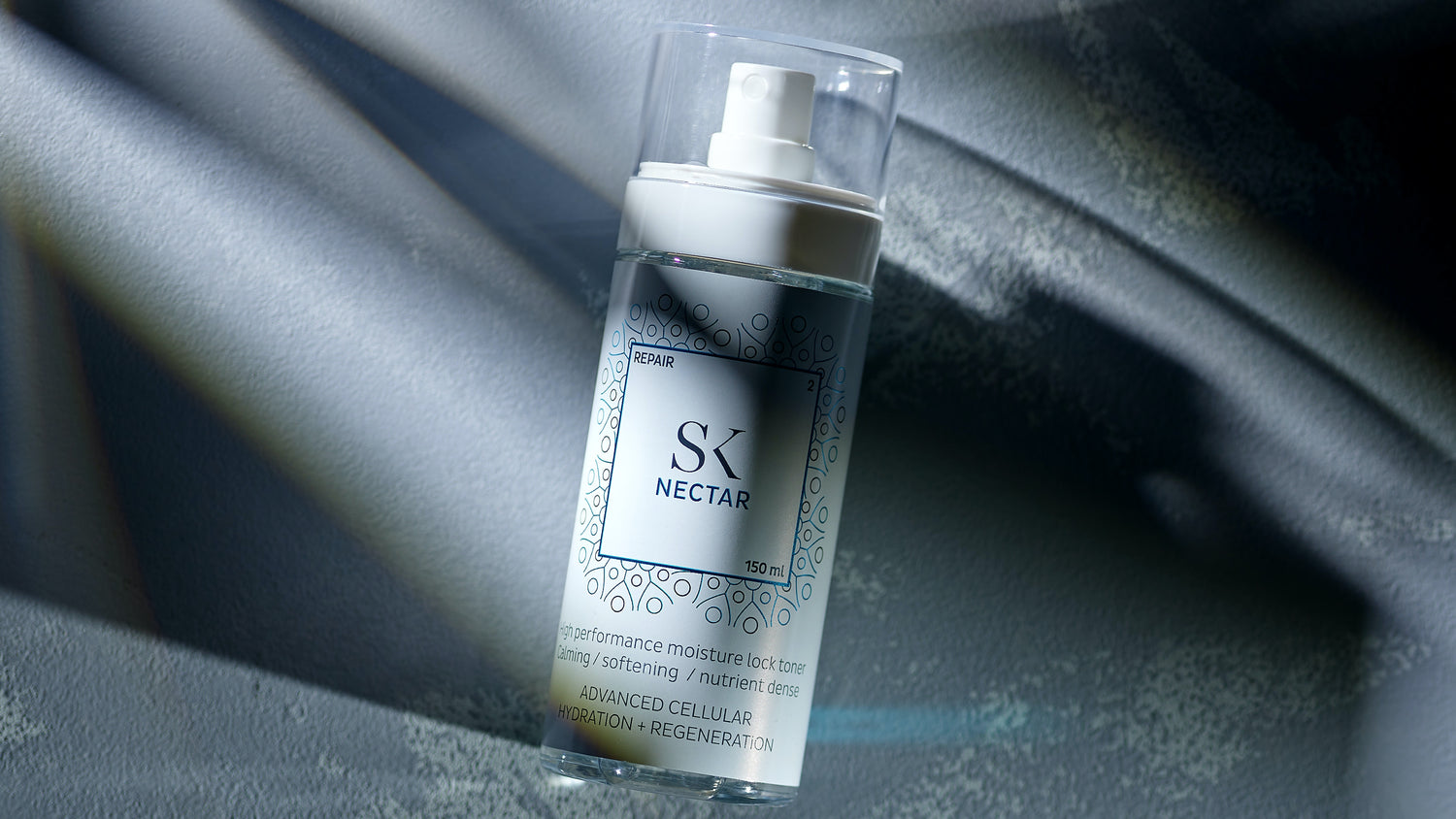The skin represents the body's first line of defense against harmful chemical, physical and biological factors such as UV radiation, air pollutants, but also viral, bacterial and fungal infections. Amino acids, in addition to being structural, also play an important role in normal cell function and protect the skin from external influences.
Why are amino acids important?
The skin is not only a physical barrier, but also a dynamic tissue with its own metabolism and interactions between external and internal cells. Amino acids significantly affect the appearance of the skin ; these are important nutrients needed to promote wound healing and repair damaged skin, acid-base balance and water retention in cellular layers, such as the stratum corneum , protection from sunlight damage, and maintenance of a healthy skin microbiome.
An unbalanced ratio of amino acids, the building blocks of proteins, causes a decrease in protein synthesis in the skin. These proteins prevent skin thinning, loss of skin elasticity and dehydration. Deficiency or dysfunction of these proteins can lead to urticaria, xerosis, eczema, itching... Also, keratinocytes use amino acids to synthesize antimicrobial peptides to kill pathogens.
The human body is not capable of synthesizing all proteinogenic amino acids by itself, so they are divided into essential and non-essential. Essential amino acids cannot be synthesized de novo by the human body, and they are necessary for the normal functioning of the body, so they must be consumed in the diet in order to maintain health and vitality. On the other hand, non-essential amino acids can be independently synthesized de novo by the human body depending on its needs, which does not make them less important for skin care. The amino acids arginine, glycine and tyrosine are also known as "conditionally essential", which means that they cannot be produced in sufficient quantities under certain conditions.
Amino acids in cosmetics
Given that amino acids are not only important for protein synthesis, but also play a role in maintaining skin health, they are often used in cosmetic products as well. None of them is more important than the others, but they complement each other, but some of them have additional advantages:
- Lysine stimulates the synthesis of collagen and elastin , proteins responsible for the firmness and elasticity of the skin. As we age, our skin produces less collagen and elastin, which leads to wrinkles. Accordingly, lysine exhibits an anti-aging role, firming the skin and promoting a youthful appearance.
- Arginine helps with skin damage by accelerating wound healing. Moisturizes and nourishes the stratum corneum to protect the uppermost layer of the skin, the epidermis.
- Glycine and proline are the most abundant amino acids in collagen, therefore it is not surprising that they are essential in the regulation of the production of this protein and reduce the depth of wrinkles. Namely, glycine quickly penetrates deep into the inner layers of the skin, to the dermis, where collagen is located. Once there, it helps stimulate collagen production resulting in firmer skin.
- Serine and alanine are common ingredients in skin care products because they play an important role in retaining water in the stratum corneum and hydrating the skin. Also, serine is one of the most abundant amino acids in the protein filaggrin, which contributes to maintaining the acidic pH of the skin surface and the moisture of the stratum corneum .
- Histidine is particularly effective as an antioxidant, protects the skin from environmental stressors, such as harmful UV rays, and also has an anti-inflammatory effect, so it soothes the skin.

Local application of amino acids, through skin care products, makes your skin more resistant to harmful environmental stressors, improves hydration, but also has an important anti-aging role by stimulating the production of collagen and elastin.
Amino acids are suitable for all skin types, even sensitive, and all age groups, especially if you want to reduce the signs of aging.
Skintegra products with amino acids
Amino acids are an important component of Skintegra products, so Clarion 2% BHA cleanser and nourishing cream CICA-CERA , in addition to the amino acid derivative glycine betaine, which maintains moisture and acts as an anti-irritant, contain arginine, and the moisturizing essence Nectar contains arginine, alanine, aspartate and glutamate to keep the skin optimally moist, supple and balanced.
Literature:
- Solano, Francisco. (2020). Metabolism and Functions of Amino Acids in the Skin.
- Wade, A. Michael & Tucker, Hugh. (1998). Antioxidant characteristics of L-histidine 1. The Journal of Nutritional Biochemistry. 9. 308–315.
- Everett, Jake & Turner, Keith & Cai, Qiuxian & Gordon, Vernita & Whiteley, Marvin & Rumbaugh, Kendra. (2017). Arginine Is a Critical Substrate for the Pathogenesis of Pseudomonas aeruginosa in Burn Wound Infections.

